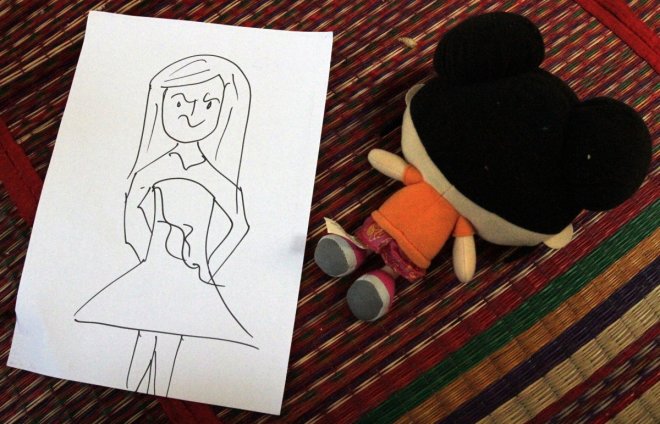
More than six months after Richard Huckle was sentenced to life in jail for sexually abusing scores of children, most of the families in the Malaysian communities where he lived are declining counselling and other help, police say.
Huckle had posed as a freelance photographer, English teacher and Western philanthropist over the past decade to gain access mostly to impoverished communities in Kuala Lumpur, where taboos around child sex abuse often prevent families from disclosing it.
Police reached out to 320 adults and 101 children in two communities affected by Huckle, Ong Chin Lan, the head of the Sexual, Women and Children Investigation Division of the Malaysian national police said in an interview.
"We have identified a few victims. We have tried to identify communities," Ong said. "But we respect the parents and guardians' view of not coming forward. They don't want to lodge a police report because of pride and shame."
Ong said police, along with the women's ministry and non-governmental organisations, have conducted programmes focusing on providing counselling and therapy for the victims and their families. She did not say how many have participated.
Also read: India child sacrifice: 4-year-old girl raped, eyes gouged out during black magic
"They (communities) are still in denial," Ong said. "I believe some of the parents don't even know their children have been sexually abused. They say leave my child alone. Let my child live a peaceful life from here on."
Non-profit groups who are trying to work with the victims say they, too, are encountering difficulties in getting victims to come forward.
Safety workshops
At the downtown Kuala Lumpur community where Huckle lived, residents avoid discussing the issue, according to its community leader.
For nearly two years, Huckle roamed the streets of this tight-knit community with a camera, participating in the neighbourhood Hindu temple's religious festivals and sports events, according to residents.
The community, which Reuters is not naming to protect the identities of the children there, was informed of Huckle's crimes by British police and NGOs in early 2016. The possibility that Huckle might have abused children there prompted several village meetings and discussions, the leader said.
But once the case became public knowledge in June, the media attention that followed left the residents wary of publicity.
"We were all shaken for 2-3 weeks but now we don't talk about it," the community leader said.
He insisted there were no victims in his community, despite media reports stating otherwise.
Also read: India: Doctor rapes 16-year-old girl after parents fail to pay for treatment
The only reminder of Huckle now is the safety workshops conducted by Protect and Save the Children (PSC), an NGO that has been in touch with the community since early last year.
PSC is holding workshops to teach children about good and bad touching, hoping Huckle's victims will come forward so they can be offered counselling.
Only around 20 of the 70 children in the ethnic Indian community have attended the workshops.
Weak protection
Huckle was arrested in London in 2014 after an Australian detective unit discovered his activities in an encrypted room on the "dark web", where members exchanged child sex abuse images and tips
He was given 22 life sentences in a London court in June after admitting to 71 charges of sex abuse against children in Malaysia and Cambodia from the ages of six months to 12.
The case shocked Malaysians who raised questions in social media about the effectiveness of child protection laws and their enforcement.
Reuters reported in November most complaints of child sexual abuse in Malaysia do not lead to successful prosecutions, largely due to weaknesses in the nation's criminal justice system. Much of the data on child sexual abuse is not disclosed because it falls under Malaysia's Official Secrets Act.
The Huckle case has prompted Malaysia to look at strengthening its laws. Late last year, the cabinet approved draft legislation that would widen the definition of child sex crimes to include online abuse and set up a special court to deal with such cases quickly.
The bill is expected to be introduced in parliament in March.








